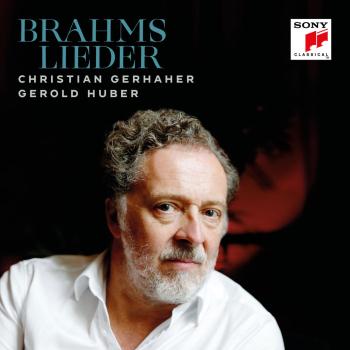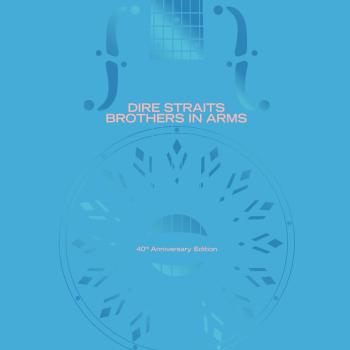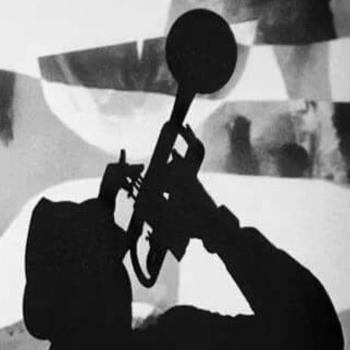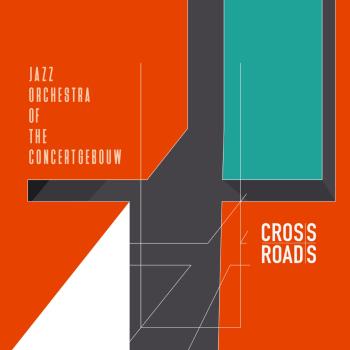
Bizet: Carmen (1964 - Prêtre) - Callas Remastered Maria Callas
Album Info
Album Veröffentlichung:
1964
HRA-Veröffentlichung:
02.10.2014
Das Album enthält Albumcover Booklet (PDF)
Entschuldigen Sie bitte!
Sehr geehrter HIGHRESAUDIO Besucher,
leider kann das Album zurzeit aufgrund von Länder- und Lizenzbeschränkungen nicht gekauft werden oder uns liegt der offizielle Veröffentlichungstermin für Ihr Land noch nicht vor. Wir aktualisieren unsere Veröffentlichungstermine ein- bis zweimal die Woche. Bitte schauen Sie ab und zu mal wieder rein.
Wir empfehlen Ihnen das Album auf Ihre Merkliste zu setzen.
Wir bedanken uns für Ihr Verständnis und Ihre Geduld.
Ihr, HIGHRESAUDIO
- 1 Bizet: Carmen: Prelude 02:16
- 2 Bizet: Carmen, Act 1: Sur la place (Chorus, Morales, Micaela) 07:23
- 3 Bizet: Carmen, Act 1: Avec la garde montante (Children's Chorus, Morales, Jose) 03:54
- 4 Bizet: Carmen, Act 1: C'est bien la, n'est-ce pas? (Jose, Zuniga) 01:14
- 5 Bizet: Carmen, Act 1: La cloche a sonn?....Dans l'air (Chorus) 04:34
- 6 Bizet: Carmen, Act 1: L'amour est un oiseau rebelle (Carmen, Chorus) [Habanera] 04:18
- 7 Bizet: Carmen, Act 1: Carmen! sur tes pas (Chorus, Carmen, Jose) 01:29
- 8 Bizet: Carmen, Act 1: Quels regardes! Quelle effronterie! (Carmen, Jose) 00:56
- 9 Bizet: Carmen, Act 1: Parle-moi de ma m?re! (Jose, Micaela) 08:57
- 10 Bizet: Carmen, Act 1: Reste la, maintenant, pendant que je lirai (Jose, Micaela) 01:32
- 11 Bizet: Carmen, Act 1: Que se passe-t-il donc la-bas?...Au secours! (Zuniga, Chorus) 03:00
- 12 Bizet: Carmen, Act 1: Mon officier, c'etait une querelle (Jose, Zuniga, Carmen) 03:44
- 13 Bizet: Carmen, Act 1: Pres des ramparts de Seville (Carmen, Jose) 04:32
- 14 Bizet: Carmen, Act 1: Voici l'ordre; partez (Zuniga, Carmen) 02:06
- 15 Bizet: Carmen, Act 1: Entr'acte 01:42
- 16 Bizet: Carmen, Act 2: Les tringles des sistres tintaient (Camen, Frasquita, Mercedes) 04:18
- 17 Bizet: Carmen, Act 2: Messieurs, Pastia me dit (Frasquita, Zuniga, Camen, Mercedes) 00:57
- 18 Bizet: Carmen, Act 2: Vivat! vivat le Torero! (Chorus, Zuniga) 01:10
- 19 Bizet: Carmen, Act 2: Votre toast, je peux vous le rendre (Escamillo, Chorus) 04:49
- 20 Bizet: Carmen, Act 2: La belle, un mot (Escamillo, Carmen, Zuniga) 01:34
- 21 Bizet: Carmen, Act 2: Eh bien! vite, quelles nouvelles?.....Nous avons en t?te un affaire (Carmen, Frasquita, Mercedes, Dancaire, Remendado, Chorus) 04:44
- 22 Bizet: Carmen, Act 2: Mais qui donc attends-tu? (Dancaire, Carmen, Remendado) 00:25
- 23 Bizet: Carmen, Act 2: Halte l?! (Jose, Carmen, Frasquita, Mercedes, Dancaire, Remendado) 01:32
- 24 Bizet: Carmen, Act 2: Enfin c'est toi!...Tout doux, Monsieur (Carmen, Jose) 05:52
- 25 Bizet: Carmen, Act 2: La fleur que tu m'avais jetee...Non, tu ne m'aimes pas (Carmen, Jose) 07:48
- 26 Bizet: Carmen, Act 2: Hola Carmen! (Zuniga, Jose, Carmen, Dancaire, Remendado) 04:59
- 27 Bizet: Carmen, Act 2: Entr'acte 03:00
- 28 Bizet: Carmen, Act 3: Ecoute, ecoute, compagnon, ?coute (Chorus, Dancaire, Remendado, Jose, Carmen, Mercedes, Frasquita) 04:02
- 29 Bizet: Carmen, Act 3: Reposons-nous une heure ici, mes camarades (Danca?re, Carmen, Jos?) 02:16
- 30 Bizet: Carmen, Act 3: Melons! Coupons! (Frasquita, Mercedes, Carmen) 06:51
- 31 Bizet: Carmen, Act 3: Eh bien? (Carmen, Dancaire, Frasquita) 00:38
- 32 Bizet: Carmen, Act 3: Quant au douanier, c'est notre affaire (Carmen, Mercedes, Frasquita) 02:49
- 33 Bizet: Carmen, Act 3: C'est des contrebandiers....Je dis, que rien ne m'epouvante (Micaela) 05:50
- 34 Bizet: Carmen, Act 3: Je ne me trompe pas (Micaela) 00:28
- 35 Bizet: Carmen, Act 3: Quelques lignes plus bas (Escamillo, Jose, Carmen, Dancaire, Micaela, Frasquita, Mercedes, Remendado, Chorus) 11:32
- 36 Bizet: Carmen, Act 3: Entr'acte 02:04
- 37 Bizet: Carmen, Act 4: A deux cuartos! (Chorus, Zuniga) 01:56
- 38 Bizet: Carmen, Act 4: Les voici! voici la quadrille! (Chorus, Escamillo, Carmen, Frasquita) 06:52
- 39 Bizet: Carmen, Act 4: C'est toi!...Viva! viva! la course est belle! (Carmen, Jose, Chorus) 08:48
Info zu Bizet: Carmen (1964 - Prêtre) - Callas Remastered
Towards the end of Callas’s career, there were many rumours that she was planning to perform Carmen on stage. This was never to be, but Carmen became her penultimate complete recording of an opera – and her only complete recording of a French opera. With Georges Prêtre, one of her favoured conductors, and the ever-stylish Nicolai Gedda as her Don José, she captured every facet of the role. As Gramophone said when the set was first released: ‘Hers is a Carmen to haunt you.’
„Maria Callas never sang Carmen on-stage, but the role seems custom-made for her strengths -- Carmen is fiery, volatile, infuriating, seductive -- and Callas is such a superb singing actress that she conveys the character's complexity with rare effectiveness. The critical acclaim and public affection for Callas' Carmen put it very high on any list of preferred versions of the opera. She has a terrific supporting cast, including Nicolai Gedda who is in excellent voice and who makes a believable, tragic Don José, a performance that has been deemed among the finest of his career. Andréa Guiot is a sweet Micaëla, and the rest of the cast is strong. Georges Prêtre leads l'Orchestre du Théâtre Nationale de l'Opéra and the Choeurs René Duclos in an exciting, idiomatic reading of the opera. EMI's sound is clean and present.“ (AMG)
Maria Callas, soprano (Carmen)
Nicolai Gedda, tenor (Don José)
Andréa Guiot, soprano (Micaëla)
Robert Massard, baritone (Escamillo)
Nadine Sautereau, soprano (Frasquita)
Jane Berbié, soprano (Mercédès)
Jean-Paul Vauquelin, tenor (Le Dancaïre)
Jacques Pruvost, tenor (Le Remendado)
Claude Cales, baritone (Moralès)
Jacques Mars, bass (Zuniga)
Orchestre du Théâtre National de l’Opéra de Paris
Chœurs René Duclos & Chœurs d’enfants Jean Pesneaud
Georges Prêtre, conductor
Digitally remastered
Maria Callas
was born to a Greek family in New York in 1923. Her vocal training took place in Athens, where her teacher was the coloratura soprano Elvira de Hidalgo, who had sung with Enrico Caruso and Feodor Chaliapin. After early performances in Greece, Callas’s international career was launched in 1947 when she performed the title role in Ponchielli’s La Gioconda at the Arena di Verona in Italy.
Her voice defied simple classification and her artistic range was extraordinary. In her early twenties she sang such heavy dramatic roles as Gioconda, Turandot, Brünnhilde and Isolde, but over the course of her career her most famous roles came to be: Bellini’s Norma and Amina (La sonnambula); Verdi’s Violetta (La traviata); Donizetti’s Lucia di Lammermoor and Anna Bolena, Cherubini’s Medea and Puccini’s Tosca. Though her timbre was not always conventionally beautiful, Callas’s musicianship and phrasing were in a class of their own. She brought characters to vivid life with her skill in colouring her tone and making insightful use of the text.
She is credited with changing the history of opera: by placing a perhaps unprecedented emphasis on musical integrity and dramatic truth, and by transforming perceptions – and reviving the fortunes – of the bel canto repertoire, particularly Bellini and Donizetti.
The 1950s marked the height of Callas’s career. Its base lay in the opera houses of Italy, and she became the prima donna assoluta of Milan’s legendary La Scala – notably in the productions of Luchino Visconti – but her operatic appearances also encompassed London’s Royal Opera House, the New York Metropolitan Opera, Paris Opéra, the Vienna State Opera, and the opera houses of Chicago, Dallas, Houston, Lisbon, and, in the early 1950s, Mexico City, São Paolo and Rio de Janeiro.
From 1959, when she started a life-changing love affair with the Greek shipping magnate Aristotle Onassis, her performing career slowed down and her voice became more fragile. Her final stage performances came in 1965, when she was only 42.
There were many plans for a return to the stage – and for further complete recordings – but they never reached fruition, though in 1974 she gave a series of concerts in Europe, North America and Japan with the tenor Giuseppe di Stefano; he had partnered her frequently in the opera house and in the studio, not least in the 1953 La Scala Tosca under Victor de Sabata, considered a landmark in recording history. Callas died alone in her Paris apartment in September 1977.
Booklet für Bizet: Carmen (1964 - Prêtre) - Callas Remastered
















































